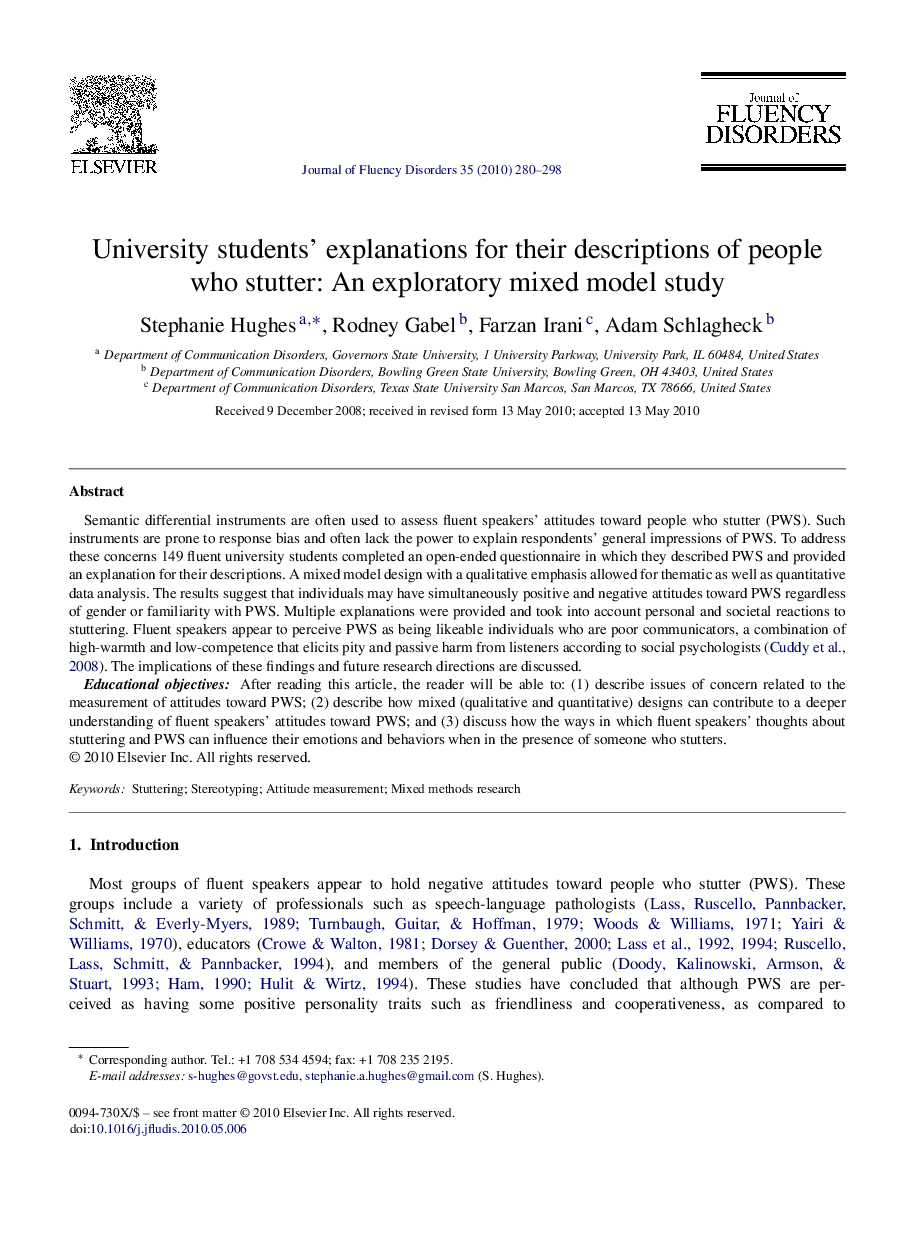| Article ID | Journal | Published Year | Pages | File Type |
|---|---|---|---|---|
| 911586 | Journal of Fluency Disorders | 2010 | 19 Pages |
Semantic differential instruments are often used to assess fluent speakers’ attitudes toward people who stutter (PWS). Such instruments are prone to response bias and often lack the power to explain respondents’ general impressions of PWS. To address these concerns 149 fluent university students completed an open-ended questionnaire in which they described PWS and provided an explanation for their descriptions. A mixed model design with a qualitative emphasis allowed for thematic as well as quantitative data analysis. The results suggest that individuals may have simultaneously positive and negative attitudes toward PWS regardless of gender or familiarity with PWS. Multiple explanations were provided and took into account personal and societal reactions to stuttering. Fluent speakers appear to perceive PWS as being likeable individuals who are poor communicators, a combination of high-warmth and low-competence that elicits pity and passive harm from listeners according to social psychologists (Cuddy et al., 2008). The implications of these findings and future research directions are discussed.Educational objectivesAfter reading this article, the reader will be able to: (1) describe issues of concern related to the measurement of attitudes toward PWS; (2) describe how mixed (qualitative and quantitative) designs can contribute to a deeper understanding of fluent speakers’ attitudes toward PWS; and (3) discuss how the ways in which fluent speakers’ thoughts about stuttering and PWS can influence their emotions and behaviors when in the presence of someone who stutters.
